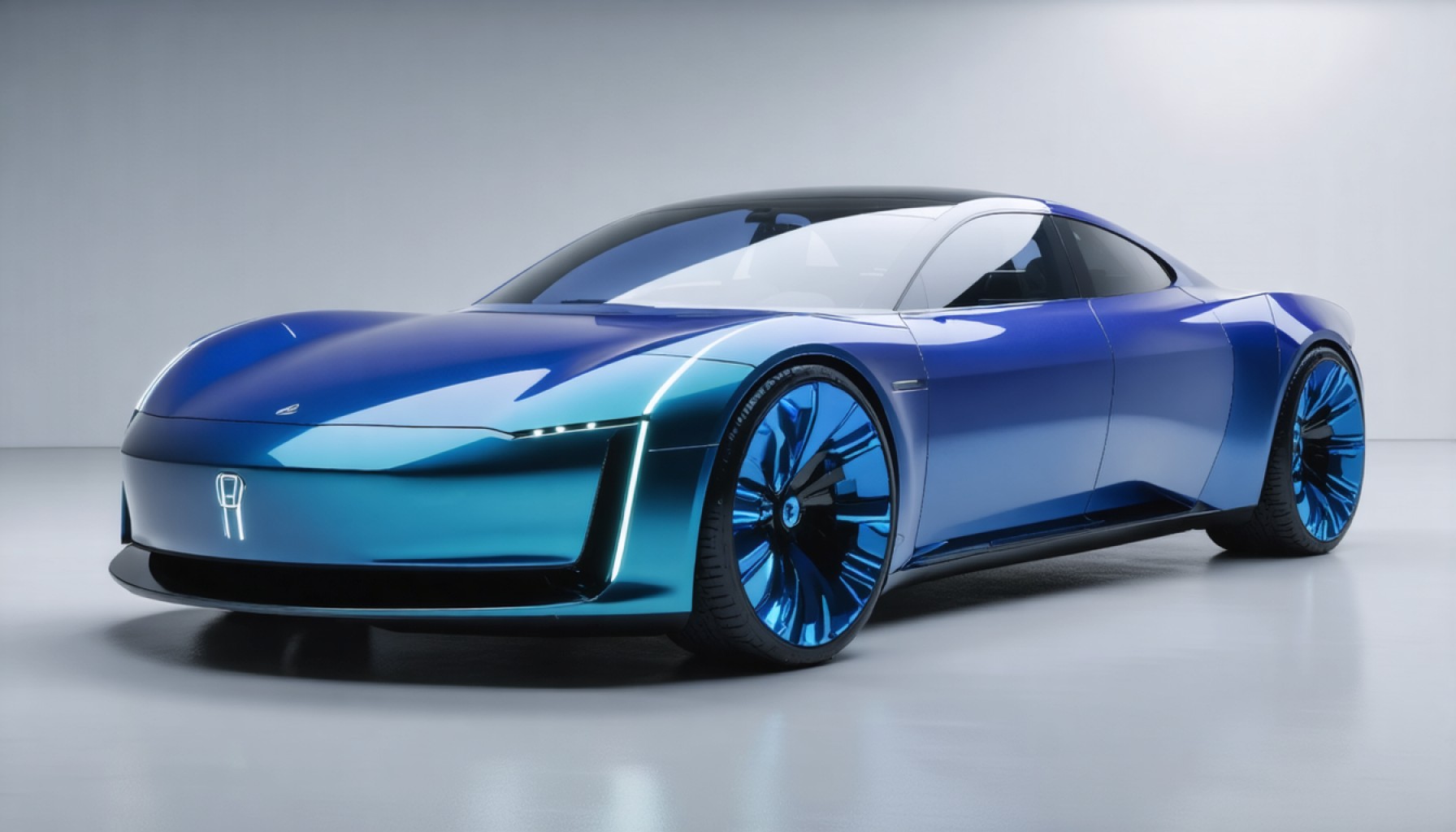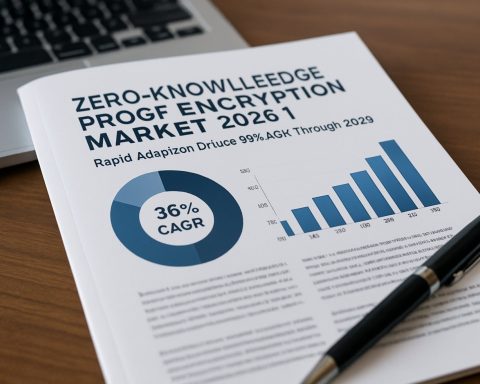- Hydrogen fuel-cell electric vehicles (FCEVs) are gaining traction across Europe, the Middle East, and Africa, offering a sustainable travel alternative.
- Major automakers like Toyota, Honda, and Daimler are investing in hydrogen technology, signaling its growing importance in the automotive industry.
- FCEVs provide a fast refueling experience, overcoming the lengthy charging times associated with battery electric vehicles.
- The technology promises zero emissions, robust driving ranges, and rapid refueling, appealing to eco-conscious consumers and businesses.
- Challenges include the need for infrastructure development and reducing hydrogen production costs, but investments are on the rise.
- As the market evolves, regulatory support for sustainable technologies could lead to significant opportunities by 2032.
- Hydrogen FCEVs represent a pivotal step in sustainable transport, with potential to rival traditional battery electric vehicles in the future.
Venture onto the bustling streets of Europe, through the looming sandy vistas of the Middle East, or within Africa’s sprawling landscapes, and you’ll witness a quiet revolution inching forward. Hydrogen fuel-cell electric vehicles (FCEVs) are swiftly gaining traction, promising to reshape how we perceive sustainable travel. While Tesla and its lithium-ion brethren have dominated recent headlines, a chorus of whispers is evolving into a clarion call for hydrogen-powered alternatives.
Imagine cruising along the autobahn in Germany or navigating the busy roundabouts of London—not in silence, but without any carbon footprint, as your car is fueled by the most abundant element in the universe. Hydrogen fuel-cell technology, once considered a distant dream, is now a palpable reality, powered by major automotive titans like Toyota, Honda, and Daimler. As these giants forge ahead, the landscape is rapidly transforming into a fertile ground for innovation.
Why, you ask? Because hydrogen fuel cells offer a swift, seamless refueling experience akin to traditional gasoline refills, circumventing the prolonged charging times of conventional battery electric vehicles. From Mercedes’ luxury FCEVs to Hyundai’s hydrogen-powered fleet, manufacturers are betting big on this technology.
In a global paradigm where sustainability enshrines every decision, hydrogen fuel-cell vehicles are emerging as a viable solution for eco-conscious consumers and businesses alike. The technology’s promise of zero emissions coupled with robust driving ranges and rapid refueling could signal a seismic shift in consumer preferences.
Yet, this revolution isn’t without its challenges. The hydrogen supply infrastructure still demands substantial development, and the costs associated with hydrogen production remain a sticking point. However, investments are escalating, and industry forecasts for 2032 suggest a market teeming with opportunities. Analysts anticipate a burgeoning ecosystem where technology meets commerce, emboldened by ever-evolving regulatory landscapes that favor a greener planet.
For businesses and consumers aflame with environmental passion, hydrogen fuel-cell technology offers a beacon of hope. This tech isn’t just about the promise of enhanced efficiency and reduced emissions; it’s a testament to human ingenuity in tackling climate change.
As dawn approaches for the hydrogen fuel-cell industry, one thing becomes clear: the future of transportation is no longer on the horizon—it’s within our grasp. Whether hydrogen will eclipse battery electric vehicles remains to be seen, but its momentum is undeniable, paving the way for an era where sustainability and efficiency drive hand in hand.
Is Hydrogen the Future of Eco-Friendly Driving? Discover the Facts!
Introduction
As the climate crisis escalates, the hunt for sustainable transportation options intensifies. Hydrogen fuel-cell electric vehicles (FCEVs) are emerging as a formidable contender in the race toward cleaner, greener automotive solutions. This exploration dives deeper into the potential and challenges of hydrogen-powered vehicles, offering insights, trends, and practical advice for eco-conscious consumers.
How Hydrogen Fuel Cells Work
Hydrogen fuel cells generate electricity by combining hydrogen with oxygen in a chemical reaction, emitting only water vapor as a byproduct. This zero-emission solution eliminates the carbon footprint associated with traditional gasoline or diesel engines.
Advantages of Hydrogen Fuel-Cell Vehicles
1. Swift Refueling: Hydrogen FCEVs offer the convenience of fast refueling times—typically 3-5 minutes—comparable to gasoline vehicles, unlike the longer recharging periods required by battery electric vehicles (BEVs).
2. Extended Range: Many hydrogen vehicles boast driving ranges surpassing 300 miles, rivaling traditional fuel vehicles and exceeding some BEVs.
3. Abundance of Hydrogen: As the most abundant element in the universe, hydrogen presents an endless potential for sustainable fuel sourcing.
4. Energy Efficiency: Hydrogen’s energy-to-weight ratio is superior, allowing for powerful performance without the emissions.
Challenges and Limitations
– Infrastructure Development: A significant hurdle for hydrogen adoption is the current lack of extensive refueling infrastructure. Investments and partnerships are critical for widespread acceptance.
– Hydrogen Production Costs: Capturing and compressing hydrogen is currently energy-intensive and costly, often relying on natural gas. Innovations in green hydrogen production, using renewable energy sources, are needed for cost-effectiveness.
– Safety Concerns: Hydrogen is highly flammable, necessitating rigorous safety protocols in production and storage.
Industry Trends and Predictions
– Potential Growth: By 2032, the hydrogen vehicle market is expected to flourish, driven by governmental policies promoting green energy and decreased costs in hydrogen production.
– Automotive Commitment: Major automakers like Toyota, Honda, and Hyundai are investing heavily in hydrogen technology, with new models set to roll out globally.
Real-World Use Cases
– Empowering Logistics: Hydrogen trucks and buses are gaining traction in public transport and logistics, illustrating FCEVs’ potential in reducing emissions in commercial fleets.
– Hydrogen-Powered Cities: Japan’s Tokyo aims to become a “hydrogen society,” leveraging the element for public transport to achieve their climate goals.
Actionable Recommendations
1. Explore Incentives: Governments offer various incentives for purchasing hydrogen vehicles, including tax credits and rebates.
2. Stay Informed: Keep an eye on regional infrastructure developments to assess the feasibility of owning a hydrogen-powered vehicle.
3. Evaluate Long-Term Costs: Consider the potential savings on fuel and maintenance through the lifetime of a hydrogen vehicle compared to traditional counterparts.
For further insights into advancements in automotive technology and sustainability, visit www.toyota.com and www.hyundai.com.
Conclusion
Hydrogen fuel-cell electric vehicles are poised to redefine the landscape of sustainable travel, offering an attractive alternative to battery electric vehicles. With continuous technological advances and growing infrastructure, FCEVs could soon become a mainstream choice for those passionate about zero-emission transportation. As hydrogen technology evolves, staying informed and engaging in eco-friendly practices will be crucial steps toward a sustainable future.









